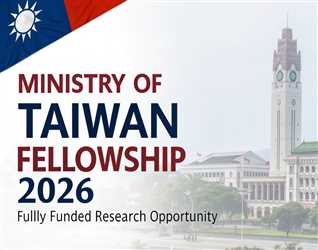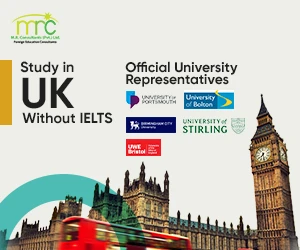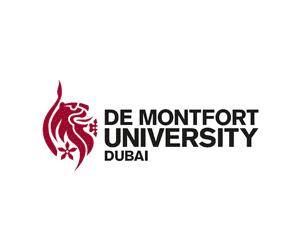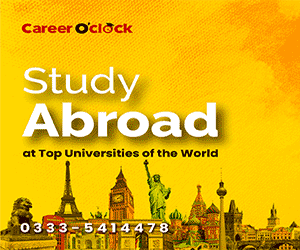
When graduate students go overseas to study abroad it's not, about immersifying themselves in a culture but also about enrichening their academic path. Studying abroad during years provides a chance for academic advancement, immersion in different cultures and development in one’s professional life. Through education, in a land graduate students have the opportunity to benefit from educational institutions, state of the art research centers and respected professors. All of which contribute to enhancing their knowledge and skills in their chosen field. Postgraduate students can also take advantage of networking opportunities to establish lasting connections and enhance their communication skills as well, as problem solving and leadership abilities. Embarking on a study program in another country helps in cultivating an outlook with improving language competencies and adaptability skills. Qualities that increase graduates appeal, to prospective employers.

Benefits of Studying Abroad for Graduate Students
For graduate students, studying abroad offers a wealth of academic and professional opportunities. By immersing themselves in a new cultural and academic environment, students can gain access to specialized courses, world-class faculty, and innovative research opportunities that may not be available in their home countries. Additionally, the global experience of studying abroad can enhance their personal growth, increase their adaptability, and foster the kind of cross-cultural competence that is increasingly valuable in today’s interconnected world.
Selecting the Right Program for Your Academic Goals:
One of the first steps to making the most of a study abroad experience is selecting the right program. Graduate students should consider factors such as the reputation of the institution, the specific areas of study offered, and the compatibility of the program with their academic and research goals. Whether it’s an exchange program, a joint degree, or a research opportunity abroad, careful selection ensures that students will not only gain valuable knowledge but also align their time abroad with their long-term academic objectives.
Leveraging Research Opportunities Abroad:
Studying abroad presents unique research opportunities that might not be available in a student’s home institution. Graduate students should seek out opportunities to collaborate with international faculty, engage in cutting-edge research projects, and take advantage of different academic methodologies. Building international research collaborations can open doors to future career prospects, including postdoctoral opportunities and funding for independent research projects. These experiences also enrich students' scholarly work and provide a broader perspective on global academic trends.

Enhancing Academic Skills and Knowledge:
In addition to access to new research and resources, studying abroad exposes graduate students to different teaching styles, learning methods, and academic standards. The experience of navigating a new educational system can refine skills such as critical thinking, independent study, and problem-solving. Exposure to diverse academic perspectives can also broaden students’ knowledge, helping them think more creatively and approach problems from multiple angles—skills that are highly valued in both academia and industry.

International Classroom Setting:
A photo of graduate students engaged in a classroom discussion or seminar, with students from diverse backgrounds participating This would emphasize the exchange of ideas, global perspectives, and the collaborative learning environment that enhances academic skills.
Library or Research Setting:
An image of a graduate student in a university library or research lab, working with academic resources like books, journals, or a computer. The setting should highlight the scholarly environment in which students enhance their research skills and knowledge.
Cross-Cultural Academic Collaboration:
A picture of graduate students working together on a project or research, perhaps with a globe or digital map in the background, symbolizing international collaboration. This reinforces the idea of expanding academic knowledge through global connections.

Presenting Research or Academic Work:
A student presenting their research to an audience, perhaps at an international conference or seminar. This would demonstrate the skill-building process of presenting research findings and engaging with academic peers from around the world.

Why Study Abroad?
Study Abroad offers a unique opportunity, for academic growth, cultural immersion, and professional development. By pursing graduate studies in a foreign country, students gain access to renowned institutions.
Popular Study Abroad Destinations
The United States, United Kingdom, Australia, Canada, and Germany are among the most popular study abroad destinations for graduate students. These countries offer high quality educations, Divers Cultural experiences and post study work opportunities. Other emerging destinations include Singapore, Japan, and Sweden, offering specialized programs and research opportunities.
Preparing for Study Abroad
To prepare for Study Abroad, research your destination country, university, and program thoroughly. Ensure you meet the eligibility criteria, language requirements, and application deadlines. Secure funding through scholarships, grants, or loans, and obtain necessary visas and travel documents.
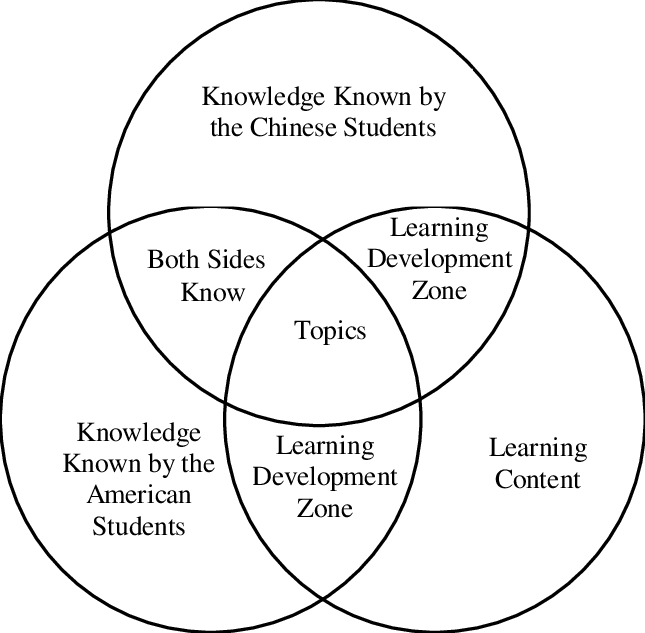
Tips for Study Abroad Success
To succeed while studying abroad, stay flexible, open-minded, and proactive. Develop language skills, engage with local culture, and participate in extracurricular activities Build a professional network, seek internship opportunities, and stay focused on your academic goals.
1. Career Opportunities after Study Abroad
Graduate who study abroad possess a competitive edge in the global job market. They can pursue careers in international Business diplomacy, education, research or consulting.
2. Overcoming Cultural Differences
Embrace cultural diversity and may be patient with language barriers. Join cultural clubs and attend events to immerse yourself in the local culture.
3. Staying Safe Abroad
Research local safety guidelines, register with your country’s travel advisory department, and stay informed about local conditions.
4. Scholarship Opportunities
Explore Government Scholarships, University funding, and private organization grants to support your study abroad journey.
5. Language Learning Strategies
Enroll in Language courses, practice with native speakers, and immerse yourself in local media.
6. Building a Global Network
Attend International events, join professional organizations, and connect with alumni.
7. Returning Home
-
Reverse Culture Stock: Prepare for re-adjustment, stay connected with international friends, and apply your new found skills.

Top Universities for Graduate Students Studying Abroad
| University | Location |
Specialties Programs |
World University Ranking (QS 2024) | International Reputation | Research Opportunities | Notable Graduate Programs |
| Harvard University | Cambridge, USA | Business, Engineering, Law, Medicine, Social Sciences | 1 | Top-tier global reputation | Extensive resources, collaboration with industry | MBA, M.D., Ph.D. in STEM fields, Law |
| University of Oxford | Oxford, UK | Humanities, Law, Medicine, Science, Engineering | 2 | Renowned worldwide for academic rigor | Interdisciplinary research, access to research funds | M.A./M.Sc., DPhil (Ph.D.) |
| ETH Zurich | Zurich, Switzerland | Engineering, Computer Science, Architecture | 6 | Leading in STEM research | Collaboration with industry and global research hubs | MSc in Engineering, Computer Science |
| University of Melbourne | Melbourne, Australia | Arts, Science, Engineering, Business, Education | 33 | Strong regional and global network | Excellent research support for international students | Master of Business, Research Programs in STEM and Arts |
| National University of Singapore | Singapore | Engineering, Computer Science, Business, Life Sciences | 11 | Top in Asia, globally recognized | World-class research in science and technology | MBA, M.Sc. in Computer Science, Engineering Programs |
| University of Tokyo | Tokyo, Japan | Engineering, Natural Sciences, Social Sciences | 23 | Strong in research and innovation | Collaboration with global research institutions | Graduate Schools in Engineering, Science, Law |
| Tsinghua University | Beijing, China | Engineering, Architecture, Business, Computer Science | 17 | Leading university in China | Strong global partnerships for collaborative research | MBA, M.Sc. in Engineering, Data Science |
| London School of Economics and Political Science (LSE) | London, UK | Social Sciences, Politics, Economics, Law | 56 | Leading in economics and social sciences | High-impact research and policy influence | MSc in Economics, International Relations, Law |
| University of Toronto | Toronto, Canada | Humanities, Engineering, Life Sciences, Business | 34 | Prestigious globally and regionally | Research institutes in health, social sciences, and engineering | M.A., M.Sc., MBA, Ph.D. in various fields |
| University of Heidelberg | Heidelberg, Germany | Humanities, Life Sciences, Natural Sciences | 67 | Strong in scientific research | Collaborative research centers, access to EU-funded projects | Ph.D., M.Sc. in Sciences, Humanities |
Key Benefits of Studying Abroad for Graduate Students
Before diving into the specifics of universities, let’s first explore the major advantages of studying abroad:
-
Academic Excellence: Many international universities offer specialized programs, advanced research facilities, and exposure to diverse academic methodologies.
-
Cultural Immersion: Studying abroad enables you to experience different cultures first-hand, enhancing personal growth and professional adaptability.
-
Global Networking: You’ll build connections with professors, industry experts, and fellow students from all over the world, which can help advance your career.
-
Research Opportunities: Exposure to cutting-edge research practices and resources allows graduate students to contribute to global knowledge and gain international experience.
-
Career Enhancement: A graduate degree from an international institution can increase your marketability and open doors to job opportunities both in your host country and internationally.
| Focus Area | Action Plan | Details |
| Engage Academically | Participate actively in classes, research, and networking events. | Take advantage of opportunities to work on collaborative research projects. Attend lectures and seminars by guest speakers from around the world. |
| Build Professional Networks | Connect with professors, researchers, and professionals. | Attend academic conferences, workshops, and networking events in your field. Join relevant organizations and online forums to stay informed. |
| Enhance Soft Skills | Develop communication, problem-solving, and cross-cultural skills. | Navigating a foreign culture and academic environment will help you develop resilience, adaptability, and intercultural communication skills. |
| Explore Career Opportunities | Look for internships, part-time work, and volunteer opportunities abroad. | Many countries allow international students to work part-time, which can be an excellent way to gain local professional experience. |
| Travel and Explore | Take advantage of the opportunity to travel in and around your host country. | Traveling within your host country or region can enhance your cultural experience and give you a broader understanding of global issues. |
| Participate in Social Activities | Join clubs, student organizations, or local groups. | Socializing with peers in and outside of your academic environment will help you build friendships and enrich your cultural immersion. |
Useful Tips for Leveraging Digital Tools and Social Media
In today’s connected world, social media and digital tools can play a pivotal role in enhancing your study abroad experience.
| Digital Tool | How to Use It | Benefits |
| Connect with professionals and alumni in your field. Follow organizations. | Build your professional network, stay updated on industry news, and explore job opportunities. | |
| Instagram/YouTube | Share your study abroad experience with academic and cultural content. | Showcase your personal growth, cultural experiences, and academic projects. Engage with peers globally. |
| Follow academic journals, professors, and industry experts. | Stay informed about the latest research, academic trends, and professional events in your field. | |
| Google Scholar | Use this platform to find research papers, articles, and academic resources. | Stay up-to-date with recent academic developments and research in your field of study. |
| Skype/Zoom | Schedule virtual meetings with mentors, professors, and academic advisors. | Stay in touch with your home institution for academic support and research collaboration. |
| Facebook Groups/Reedit | Join groups related to study abroad or your field of study. | Participate in discussions, get advice from fellow students, and share experiences. |

-
Twitter: @StudyAbroadIntl
-
LinkedIn: Graduate Study Abroad Community
-
Instagram: #GraduateAbroadExperience
How to Choose the Right University for Your Graduate Studies Abroad?
When selecting a university for graduate study abroad, consider the following factors to ensure that you make the most of your advanced education:
Program Specialization
-
Choose a university that offers specialized programs aligned with your academic interests and career goals. Some universities are known for their strength in specific fields (e.g., engineering, business, humanities, etc.).
Research Opportunities
-
Access to cutting-edge research labs and international collaborations can be critical, especially for graduate students. Look for universities with strong research centers and global partnerships.
Location
-
The location of the university can influence your academic, cultural, and professional experience. Consider whether you want to study in a bustling metropolitan city (e.g., London, New York) or a quieter academic environment (e.g., Oxford, Heidelberg).
International Network
-
Strong global partnerships with universities, corporations, and research institutions can enhance your learning opportunities and expand your professional network.
Conclusion
Studying abroad as a graduate student is a valuable opportunity that can significantly enhance your academic, professional, and personal growth. By thoroughly preparing, engaging in your academic and social environments, and leveraging digital tools, you can make the most of your international education experience. From accessing world-class research resources to developing a global network, studying abroad offers unparalleled advantages for graduate students who are ready to invest in their future.



.gif)


 267
267
 0
0
